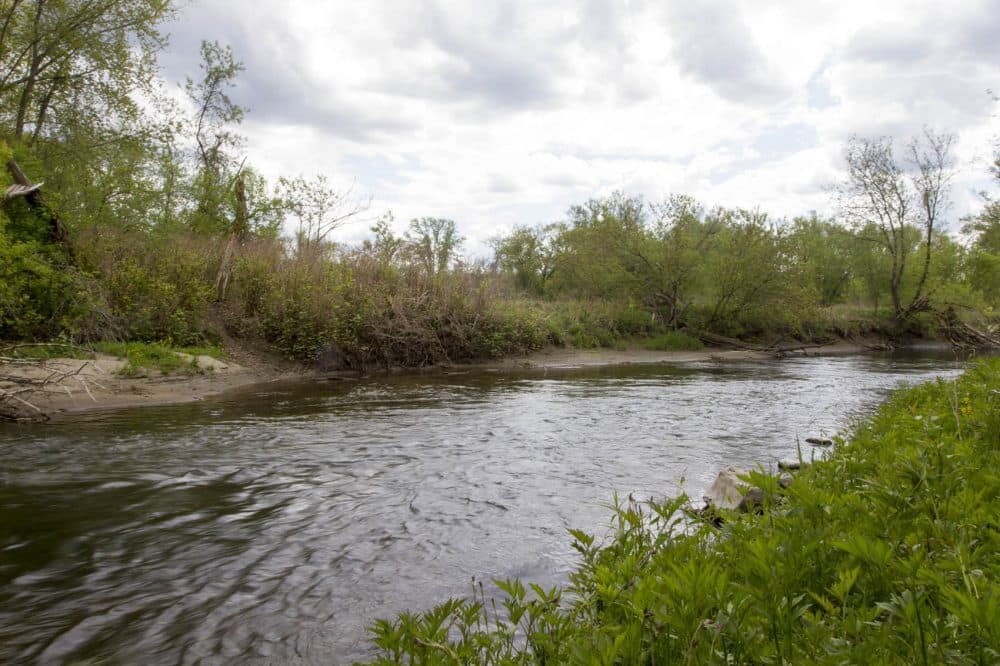Advertisement
All The Players But Mass. Join Housatonic River Cleanup Mediation
Resume
The U.S. Environmental Protection Agency and General Electric Co. are funding a new approach to negotiating an agreement on the cleanup of the Housatonic River. Just last week, many of the stakeholders met with an independent mediator.
But one key player is choosing not to participate.
A GE plant in Pittsfield, Massachusetts, contaminated the river with PCBs. Congress banned them in the 1970s because of their toxicity. GE and the EPA have since cleaned up two miles of the river, but the EPA's plan for the rest is tied up in a government appeals process.
Now, many of the parties who were part of the appeal have been invited to a confidential mediation process, led by John Bickerman, a private mediator.
According to Bickerman, the stakeholders said they'd like to try to keep this out of court.
One sticking point is where to put the toxic waste after it's dug up.
The EPA wants to send it to a facility out of state. GE wants to dispose it near the river. But Bickerman said any aspect of the cleanup is up for discussion.
“There’s no guarantee that we’ll reach an agreement,” said Bickerman. “But there was a recognition that if they didn’t try, the process could go on for years and years and years.”
The EPA, GE, six Berkshire County communities, at least two environmental groups, one neighborhood group and the state of Connecticut are taking a seat at the table — but not Massachusetts.
The state's environmental agency said it is providing factual and legal support to the EPA, but declined to explain why it's not taking part in the mediation.
Alexandra Dunn, head of EPA New England, hopes Massachusetts has a change of heart.
“The more voices that come to the table, the more successful the outcome is,” said Dunn. “And we certainly do hope that there will be participation at some point from the commonwealth.”
Traci Iott, from the Connecticut Department of Energy and Environmental Protection, said mediation is only one way for her state to work with Massachusetts and the EPA.
“No matter who is at the table, we’re still going to have lines of communication with our sister agencies. So, I’m sure that we’ll still be able to talk with them and problem-solve with them,” Iott said.
Dennis Regan is Berkshire director for the Housatonic Valley Association. That's an environmental group which was not invited to the mediation because it wasn't part of the appeal. He wants a more open process.
“This is their solution: to go behind closed doors,” Regan said. “We want to keep it out to the public, to let the public know exactly what’s being planned, and what are the ramifications of the different alternatives being proposed.”
Dunn said public input is required for any cleanup decision that comes out of mediation, which could take months or years.
This story was originally published at New England Public Radio.
This segment aired on September 19, 2018.